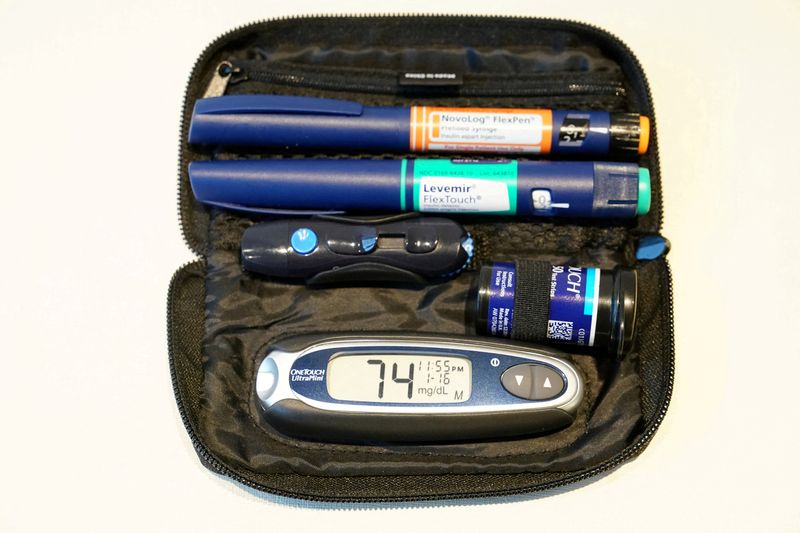
© Reuters. FILE PHOTO: Insulin supplies are pictured in the Manhattan borough of New York City, New York, U.S., January 18, 2019. REUTERS/Carlo Allegri
By Brendan Pierson
(Reuters) – California is suing the United States’ leading insulin makers and pharmacy benefit managers, accusing them of using their market power to overcharge patients for the life-saving drug, the state’s attorney general announced on Thursday.
The lawsuit targets Eli Lilly (NYSE:) and Co, Novo Nordisk (NYSE:) A/S and Sanofi (NASDAQ:) SA, which together make a large majority of the insulin drugs sold in the United States, Attorney General Rob Bonta said at a press conference.
It also names leading pharmacy benefit managers (PBMs) – UnitedHealth Group Inc (NYSE:)’s Optum unit, CVS Health Corp (NYSE:)’s CVS Caremark and Cigna Corp (NYSE:)’s Express Scripts (NASDAQ:). PBMs maintain the lists of drugs covered by health insurance plans and negotiate prices with manufacturers.
Insulin drugs are needed to control diabetes. About 8.4 million Americans depend on insulin, according to the American Diabetes Association.
The defendants did not immediately respond to requests for comment.
Eli Lilly and Sanofi both previously announced that they would cap the cost of a 30-day supply of insulin at $35 for uninsured patients.
California said that the companies’ dominance in the market, with drugmakers supplying more than 90% of insulin drugs worldwide and the pharmacy benefit managers managing about 80% of prescription claims in the United States, has allowed them to hike insulin prices at patients’ expense.
Prices of top-selling insulin drugs have soared in recent years. According to a 2021 Congressional report, Eli Lilly had raised the price of its Humalog 1,219% per vial since it launched, Novo Nordisk raised the price of NovoLog 627% since its introduction and Sanofi has raised the price of Lantus 715%
Minnesota, Mississippi, Arkansas and Kansas, as well as groups of drug purchasers, have previously brought similar lawsuits.


Be the first to comment